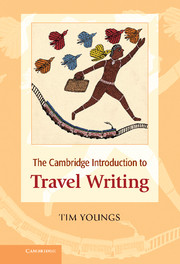Chapter 11 - Reading travel writing
Published online by Cambridge University Press: 05 May 2013
Summary
What the travel book needs is not an elegiac history but the ground rules of an intelligent criticism.
Jonathan RabanCrisis
Up to now, this volume has provided an historical overview of travel writing, offered a focus on enduring themes, and discussed travel writers’ views and comments on their craft. The present chapter concentrates on what has been largely implicit in previous chapters: ways of reading travel writing. As we have noted, the modern criticism of the genre has developed rapidly since the last quarter of the twentieth century, impelled in the first instance by Edward Said’s Orientalism (1978), which stimulated new attention to travel texts, and then gathered momentum with Peter Hulme’s, Mary Louise Pratt’s and Sara Mills’s studies of travel and cultural encounter, especially in colonial contexts. In the wake of these foundational works, scholars began to focus more critically on representations of the Other and to see in them self-serving motives and unequal power relationships. In the eyes of Said, and many of those writing under his influence, travel writing not only reflected and accompanied, but also helped facilitate the exercise of colonial power. Said’s contention that ‘ideas, cultures, and histories cannot seriously be understood or studied without their force, or more precisely their configurations of power, also being studied’, and his assertion that ‘The relationship between Occident and Orient is a relationship of power, of domination, of varying degrees of a complex hegemony’, implicate travel writing as part of the process. Propelled by new directions in critical theory at large, many scholarly readings make it their mission to uncover the presence and functions of ideology. Critiques of the constructions of ‘race’ and gender in travel narratives challenge stereotypes and dominant assumptions. They seek to expose, confront and overthrow what Said identifies as the idea that was ‘the major component in European culture’ and that was ‘precisely what made that culture hegemonic both in and outside Europe: the idea of European identity as a superior one in comparison with all the non-European peoples and cultures’. In a well-known passage, Said suggests that the things to look for in representations of the Other are ‘style, figures of speech, setting, narrative devices, historical and social circumstances, not the correctness of the representation nor its fidelity to some great original’.
- Type
- Chapter
- Information
- The Cambridge Introduction to Travel Writing , pp. 163 - 176Publisher: Cambridge University PressPrint publication year: 2013

